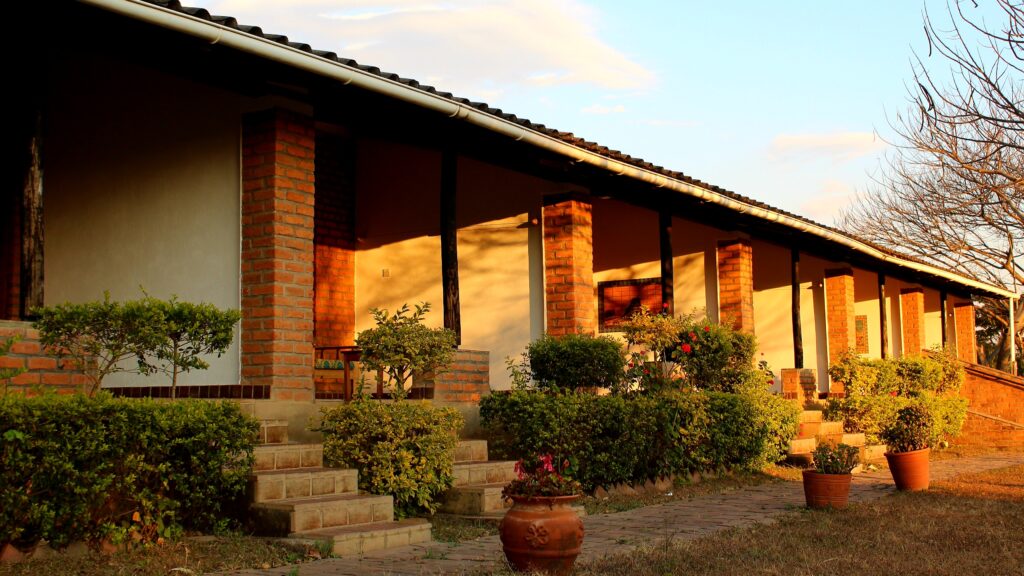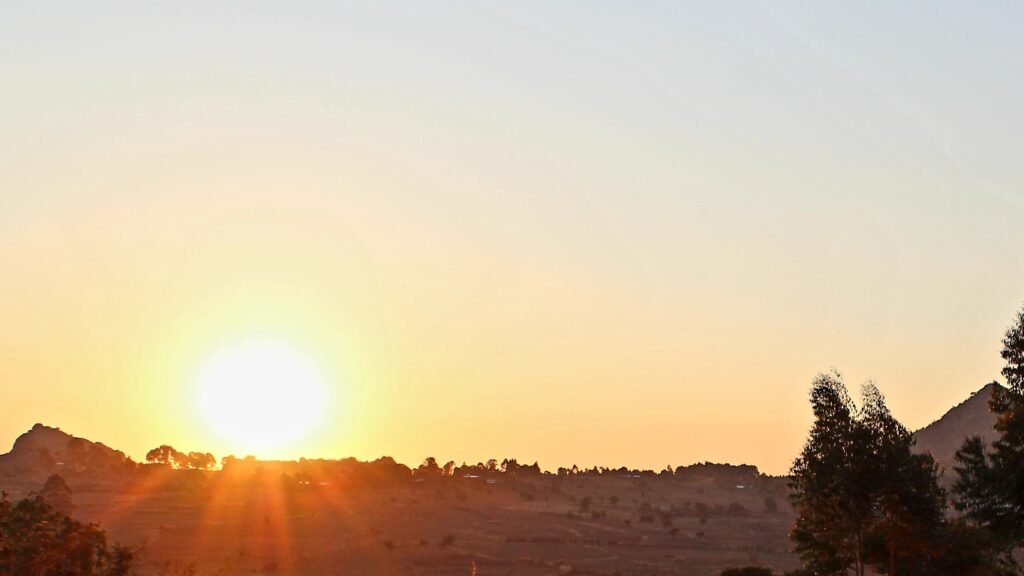At Dedza Pottery
It seems appropriate to write the first of these Respites at the conclusion of an Ulendo on which I have sought recreation amidst what is done well in Malawi. I would not be the first to comment that it is a particular quality of the country, different from others in this part of Africa, that those who humble themselves to live with its various frustrations produce on occasion something remarkable, far beyond what might be conceived ordinarily, either in their home countries or across a border.
Travels have taken me to the Hippo View Lodge, in Liwonde, which is characterised by nondescript buildings, lurid renderings of local fauna in cement that are memorably hideous, and formal gardens, on the banks of the River Shire, that suggest a Mogul watercolour: a study in perfection, which is glorious to behold. It would be invidious to draw attention to one detail of the harmonious whole. However, the groves of C. medica, the citron, are a direct link to Northern India, where Alexander the Great encountered it, and thus knowledge passed to Theophrastus and Greece. The peacocks, which also suggest a place far away in the East, are restored to residence. We owe this ‘paradise’ (Persian ‘pardes’) to the Siku Transport Company.
Thence to Zomba, the old colonial capital, and the Ku Chawe Inn, high on the plateau, only two hours at most from Liwonde, but in climate and mise-en-scène a different world. This is (nowadays) a Sunbird hotel: in Blantyre and Lilongwe they do not impress, offering, perhaps, the amenities of a Holiday Inn to the undiscerning elites of those cities. But we are spared this here: the buildings would befit a Swiss mountain lodge: all well formed brick and stout timbers, with great open fireplaces. The terraced garden is again a labour of love: Asters and Angel’s Trumpets awake of a morning amidst the clearing mists; and the views are far off toward Chiradzulu and Blantyre (we might even say toward the Malawi of the present day). The service lacks the obsequiousness evident in the cities: one is made welcome to this sanctuary by a staff which, it seems, is conscious of sharing a privilege.
Here, on the Assumption, I followed news of the Fall of Kabul on the BBC. There is a certain romance in making such a study from one distant corner of the old Empire to another. It is also reassuring to note quite how evanescent prove the prevailing idols of the age – let us call the adherents of their cult NGO’dom – when confronted with the sort of faith and self-confidence that once brought Englishmen to Central Africa.
I write from Dedza Pottery, where an English potter and his Malawian wife have laid out another handsome garden at the foot of Mount Dedza. From Cheltenham, via Malindi Mission and Crete, Chris. Stevens has established a pottery, which impresses, not only for its decorative work, but also for the quality of its commercial ware: tiles for roof and floor, not least, which impart to its lodge and restaurant a coolness and a solidity that lack almost all place else. The restaurant’s moussaka with the Irish potatoes of Dedza – a staple that I have enjoyed throughout my time in Malawi – is most likely a memory of Crete. And it is satisfying especially to note the family’s younger daughter, Chifuno, currently in residence to manage the business: I taught her Greek to A level, and she took a degree in Chemistry at Rhodes.
I begin tomorrow, with a measure of diffidence, the journey back up country to Kamuzu Academy, where I have taught now for seventeen years. These Respites will reflect, in the first instance, on Malawi, and, perhaps inevitably, on the ‘Long Defeat’ that we have fought (and fight still) in the attempt to uphold a dwindling outpost of civilisation at the ‘Eton of Africa’.

